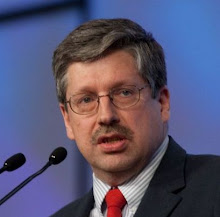Stormy Weather on a Global Scale
Globalization is a powerful reality. While it brings much prosperity, it intrudes ever more on a variety of proud and ancient cultures. Tom Bandy described the phenomenon on a listserv as the collision of two major weather fronts. Having spent most of life in the tornado alley of the central United States, this conjures up images for me of devastating storms and violent tornados.
Thomas Friedman’s book the “World is Flat” tells of ten factors that are “flattening” the world. (See yesterday’s post.) He is basically describing the integration of half the planet into one interdependent community. This integration is creating tremendous economic benefits for most of the peoples involved but it is also challenging long held cultural values in many of these places, including the United States. Those not involved in the integration are fast becoming isolated into regions of poverty.
Almost a century ago, Marxist-Leninism (ML) emerged in Russia as response to feeling humiliated and oppressed by both monarchical rule and the sweeping tide capitalism in the early 20th Century. The Russians, and later the Chinese, sought out disaffected societies and tried to instigate a revolution against capitalism. They wanted to usher in a workers paradise. The collapse of the Soviet Union, starting with the fall of the Berlin Wall on November 9, 1989, spelled the end of any major storm front between communism and the free market world. However, another storm front was right on its heels.
Friedman writes of Islamo-Leninist in his book. Many Islamic nations have a proud and ancient past. Yet around them they see nations who do not value their culture achieving unprecedented prosperity. The cognitive dissonance between “having the true religion” while a widening array of “infidels” are rapidly prospering is very distressing. Some Muslims have sought integration between the two worlds, but others will have none of it. Their aim is to destroy the globalization juggernaut and usher in an Islamic paradise. Their means is exportation of terror cells around the world to disrupt and “close up” free societies. The explosion of a nuclear weapon in a major city would almost certainly bring globalization to a stand still. Would it stop it all together?
Meanwhile another potential storm front is China. China joined the World Trade Organization in 2001 and has had massive economic growth ever sense. However, China has tightly controlled the level of capitalist activity it will allow and is still under the control of a totalitarian government. What will happen when a sizeable middle class develops that begins to demand political freedom as has occurred ever where else free markets have penetrated? Will the “walls fall” or will there be retrenchment? This has the potential for being a devastating storm front for globalization although it is not immediately threatening.
So what does it mean to be a Christian in this time and place? As a Christian, I think the dream of an Islamic utopia is another expression of a desire to return to Babel. So is the dream of a communist totalitarian society. On the other hand, is not the rule of the world by global corporate agendas another way of uniting the world at Babel? What does it mean to give witness to the New Jerusalem today?
More to come.


2 Comments:
I was glad to see your last paragraph. I was thinking in this and the previous post, "echoes of Shinar". Whether it is a world democratic system (which I find unlikely), or a world business arrangement (kind of plutocracy) -- or an Islamic utopia (which is anything but), or a Marxist utopia (ditto) . . . It is still the same bill of goods. Humankind trying to shelter ourselves from God -- to take the reigns of our own destiny.
The fact that globalization has been dillegently worked toward for at least 100 years reveals that this is a human plan. It is not the New Jeruslam. More like the same old Babel. Babel was effectively global -- as it involved all people. Many of the ancient empires worked much the same way. And under all of them trade flourished, prosperity increased -- but so did many other problems.
"The fact that globalization has been dillegently worked toward for at least 100 years reveals that this is a human plan. It is not the New Jeruslam. More like the same old Babel. "
And yet God takes "Salem," a construction of man to defy God, and redeems it for his purposes. I think I see both Babel and the New Jerusalem emerging. Jesus spoke of the wheat and tares. I learned this week that the tares Jesus refers to are almost indistinguishable from wheat even to the trained eye. It is only when the graing buds, "bears fruit," that you can see which is which. I hope to write more about this in later posts.
Post a Comment
<< Home